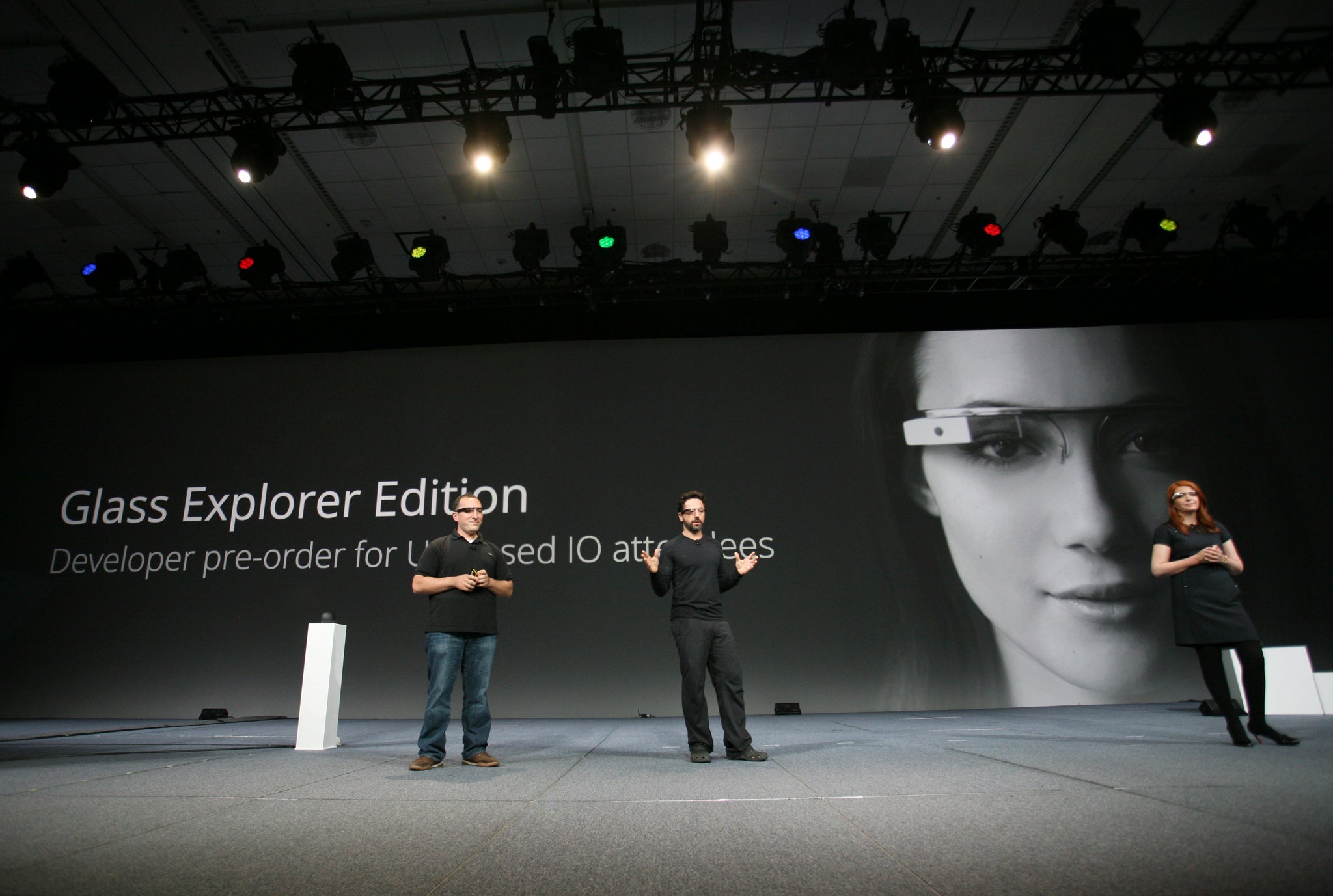Google is trying to trademark the word 'Glass' to protect its wearable computer
The search giant's application was rejected for being "merely descriptive"

Your support helps us to tell the story
From reproductive rights to climate change to Big Tech, The Independent is on the ground when the story is developing. Whether it's investigating the financials of Elon Musk's pro-Trump PAC or producing our latest documentary, 'The A Word', which shines a light on the American women fighting for reproductive rights, we know how important it is to parse out the facts from the messaging.
At such a critical moment in US history, we need reporters on the ground. Your donation allows us to keep sending journalists to speak to both sides of the story.
The Independent is trusted by Americans across the entire political spectrum. And unlike many other quality news outlets, we choose not to lock Americans out of our reporting and analysis with paywalls. We believe quality journalism should be available to everyone, paid for by those who can afford it.
Your support makes all the difference.Google is reportedly having trouble registering the word ‘Glass’ as a trademark for its trailblazing wearable computer.
The US Patent and Trademark Office has objected to the application by arguing that the trademark was too similar to other software products and that “Glass” was “merely descriptive”.
In response, Google’s trademark attorneys sent a document containing 1,900 pages of articles about Google Glass, the Wall Street Journal reports. Their intent was to show that the sheer volume of media attention concerning Glass means that consumers are unlikely to confuse it with any other product.
They also argued that the term “Glass” is not descriptive, as the device – which has been given a limited release in the US as Google navigates the numerous social and legal implications of the technology – is actually made mostly from titanium and plastic.
The case has drawn comparisons with the trademarking of the word ‘Candy’ by mobile developer King back in January. The games maker said they wanted to use the trademark to take down clones of their hugely popular title Candy Crush Saga, but many thought that the move smacked of corporate megalomania. In attempting to exercise at least partial control over such a common word Google is exposing itself to similar criticism.
Although it seems that the public is quite happy to adopt new additions to the language that have sprung up from the world of technology (‘Google’ itself entered the OED as a verb way back in 2006), perceived attempts to control language quickly becomes an emotive topic.
Google won’t want to add to the pre-emptive backlash against Glass by pushing their attempted trademark too hard, but in recent years the company has displayed an unfortunate lack of common sense when it comes to attempts to control their corporate interests.
In early 2013 the internet giant sent in the lawyers when the Language Council of Sweden, a regulatory body responsible for ‘cultivating’ the country’s language, added ‘ungoogleable’ (“ogooglebar”) to a list of new words.
Oddly enough, Google’s objection was not that ‘ungoogleable’ was a slight against their product, but that the term could be also used to refer to failed searches on their rivals' products.
If the search giant wants the public to accept the notion of wearing a face-camera every hour of the day as even vaugely normal, then this is exactly the sort of obsessive behaviour they're going to have dial back on - from this perspective attempting to trademark Glass is not a good start.
Join our commenting forum
Join thought-provoking conversations, follow other Independent readers and see their replies
Comments